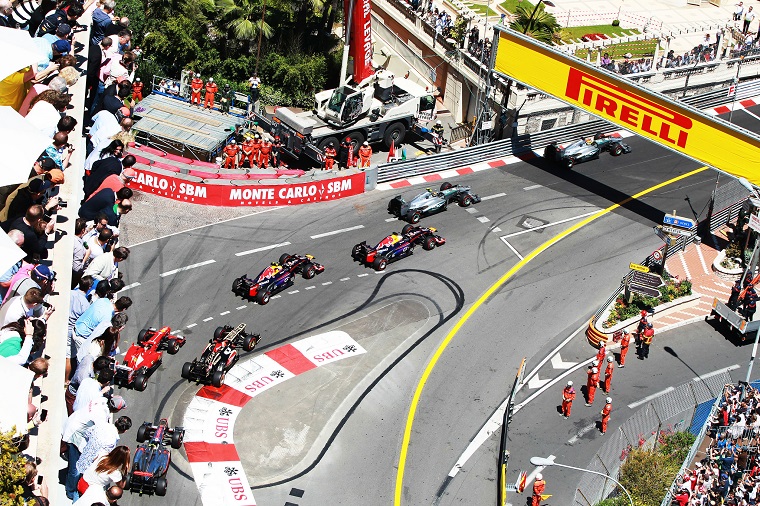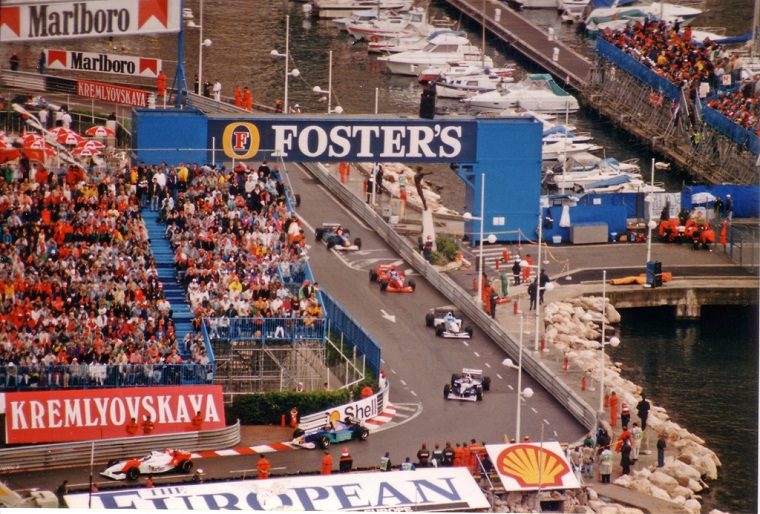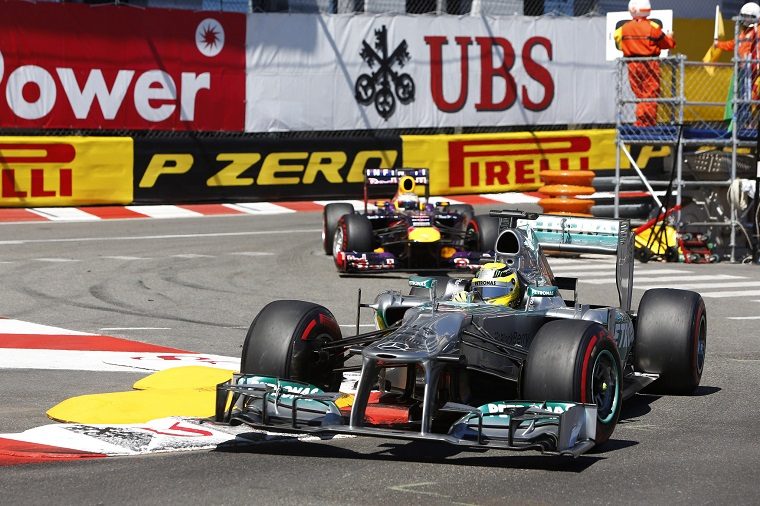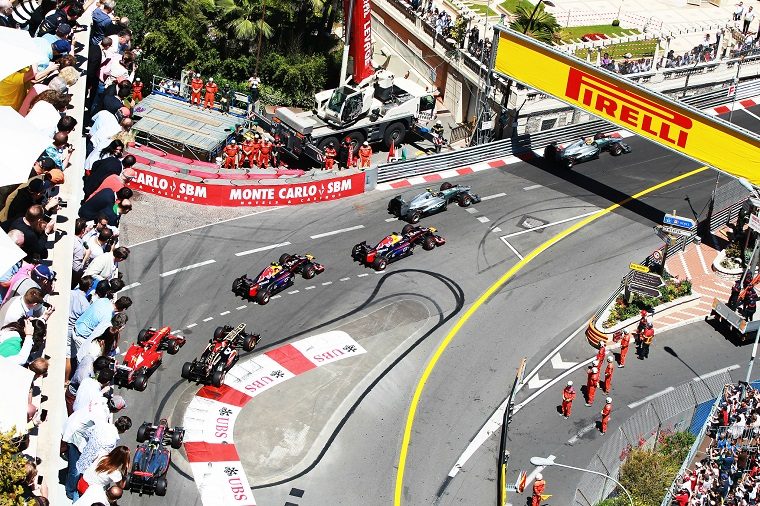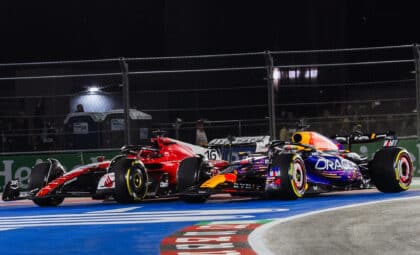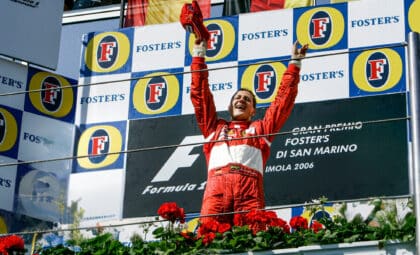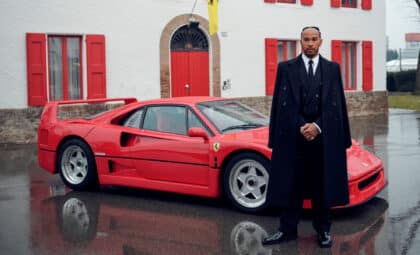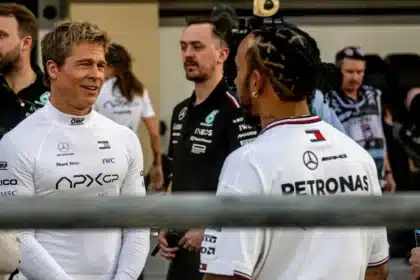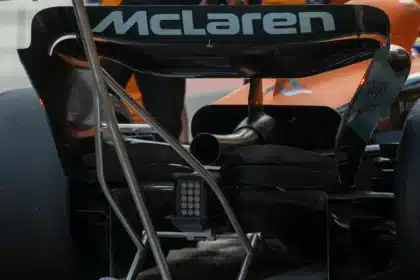Photo: Steve Gregory
I have watched Formula One almost nonstop since 1998 and to this day the Monaco Grand Prix remains to me the most curiously popular event on the calendar.
The upcoming race in the streets of Monte Carlo will take place less than a week from now and already the media and the internet are abuzz with excitement. There is always an extra layer of anticipation ahead of the Monaco GP, several additional levels of prestige compared to other F1 races, and—as Niki Lauda reminded us recently—“whoever wins in Monte Carlo gets as much attention and exposure as the world champion.”
But why? As races go, the Monaco GP is arguably the most boring on the calendar. It’s the one race where your Saturday qualifying performance is almost universally regarded as more important than your Sunday race performance because it is and has always been nearly impossible to overtake there. As long as you place your car high up on the grid for the start, you’re almost guaranteed to have a good result provided you don’t crash your car into the wall.
Service FAQ: From oil changes to where you should get your car serviced
Nico Rosberg leads Sebastian Vettel into the Piscine corner
Photo: Alastair Staley/LAT Photographic
There is definitely a lot of merit to actually pulling off “not crashing” in Monaco, even for professional racing drivers. It’s easier to damage your car in those narrow streets than at any other circuit on the calendar, which rewards the drivers who are fast yet precise and fearless. This should be taken to another level this year because of the wider cars, though not without further hurting the already low quality of the wheel-to-wheel racing.
Yet the narrowness of its circuit does little to explain the Monaco Grand Prix’s prestige. Should walls be propped up all around Silverstone or Monza, it is doubtful that those already beloved circuits would reach the same level of fame Monaco enjoys. Similarly, the Monte Carlo Rally held in the same area is considered the most prestigious rallying event of the year, yet most would agree that Finland has much better stages.
It seems, then, that the explanation for the curious popularity of the Monaco Grand Prix rests in history and money, particularly the latter. It’s one of the oldest races on the F1 calendar, so that helps, but more importantly Monaco boasts the highest density of millionaires of any city in the world. A whopping one in three people who live there are millionaires, including many current and former drivers, and though most point to the great weather and geographical location at the heart of Europe, the honest among them cite the tax benefits as the main reason to make Monaco their home.
Not Ultra Rich? Learn these common finance terms before you buy a car
Admittedly the view is pretty phenomenal
Photo: Andy Hone/LAT Photographic
Simply obtaining a Monegasque passport is an increasingly exclusive affair afforded only by the ultra-rich, and the annual race thus has a tendency to attract the world’s elites and those who wish to be seen mingling among them. Attending the Monaco Grand Prix has become a status symbol, which also explains why so many celebrities who know nothing about racing bother to attend. This, in turn, continues to make the race seem even more prestigious and glamorous, which attracts even more of the world’s most successful people, and so on and so forth.
If you watch Formula One for the racing, however, it all gets a little droll, especially as the race weekend approaches and the TV commentators keep playing up its supposed importance, many of whom are former drivers and millionaires who will spend more money in restaurants that day than I make in a year.
I don’t speak out of jealousy. SkyF1’s Martin Brundle, for instance, has earned every penny of his estimated $300 million net worth. Yet wealth on its own is not enough to make a race exciting, and unfortunately—in the name of preserving the prestige that piles upon piles of money has afforded the Monaco Grand Prix over the years—little has been done to actually make it a better place for actual racing. And that’s just a shame.
Kurt Verlin was born in France and lives in the United States. Throughout his life he was always told French was the language of romance, but it was English he fell in love with. He likes cats, music, cars, 30 Rock, Formula 1, and pretending to be a race car driver in simulators; but most of all, he just likes to write about it all. See more articles by Kurt.

